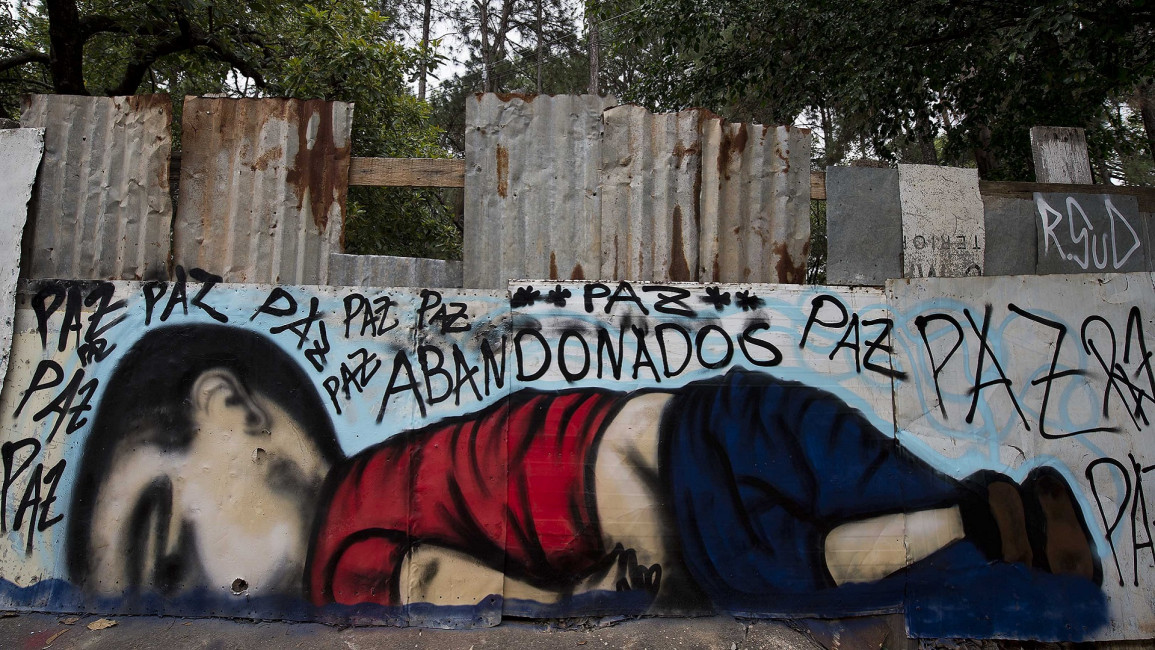
Europe Vs. Europe: Charlie Hebdo insults Aylan al-Kurdi's memory
On the one hand, Europeans reacted with astonishing solidarity with the hundreds of thousands of refugees fleeing to their shores.
Many tales of generosity and hospitality vis-a-vis the refugees emerged over the past several months, from the United Kingdom to Germany and Sweden.
On the other hand, other Europeans reverted back to the darkest inventions of their continent, namely, far-right xenophobia, racism and even fascism.
Horrific reincarnations of Nazi-inspired movements appeared - though in much milder forms, at least for the time being - from Pegida to Golden Dawn, and now, the Soldiers of Odin, a group of self-proclaimed patriots patrolling the streets to protect "native Finns" from immigrants in Finland.
We do not need to repeat cliches about slippery slopes and how it would not be far-fetched for these Islamophobic (as opposed to anti-Semitic in the past) groups to become mainstream, say if we get another great depression or another major terror attack with mass casualties.
In Denmark, the parliament began debating on Wednesday a controversial plan to seize refugees' valuables, with the bill widely expected to pass a Jan. 26 vote after being backed by a majority of lawmakers.
The bill has been criticized by UN refugee agency UNHCR, which fears it will "fuel fear" and "xenophobia," while international media have compared the searches to Nazi Germany's seizing of gold and valuables from Jews and others during World War II.
Charlie Hebdo, again
To the category of the "worst in Europe" belongs France's satirical magazine Charlie Hebdo.
Charlie Hebdo has run a cartoon that suggests if Aylan al-Kurdi, a 3-year-old Syrian refugee who washed up dead on a Turkish shore, had survived his journey to Europe, he would have become a "groper in Germany."
Laurent Sourisseau, also known as "Riss," drew the cartoon.
Sourisseau was present when Islamist extremists attacked the publication's offices in January. That attack left 12 people dead; Sourisseau was shot in the shoulder.
Charlie Hebdo often drew flack before and afterwards for its offensive cartoons - including of Prophet Muhammad - which often adopt a right-wing view on questions like those of minorities, immigrants and multiculturalism.
Nevertheless, the publication garnered a lot of sympathy at the time, including from Arabs and Muslims who rushed to defend its freedom of speech in the aftermath of the terrorist massacre at its offices, perpetrated in their name.
However, it is clear the last thing Charlie Hebdo is interested in is building bridges with the Arab and Muslim communities, which it has often depicted as backward misfits in Europe.
Yet depicting a dead 3-year-old Syrian refugee child fleeing war as a sexual pervert is no doubt a new low, aimed at not only gaining infamy - and more magazine sales - through shock value, but also perpetuating the worst kinds of stereotypes about Arabs, Muslims and immigrants in Europe.
Charlie Hebdo is free to do so of course, but we are also free to call it racist and crass, and we are not the only ones who are outraged.
Twitter Post
|
Twitter Post
|
Twitter Post
|




